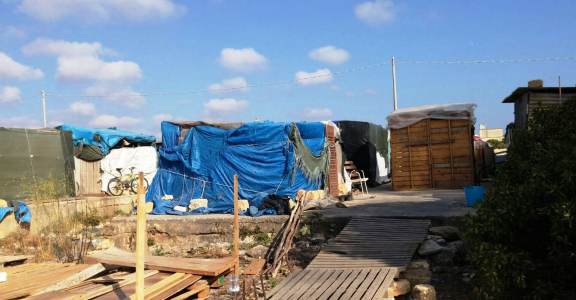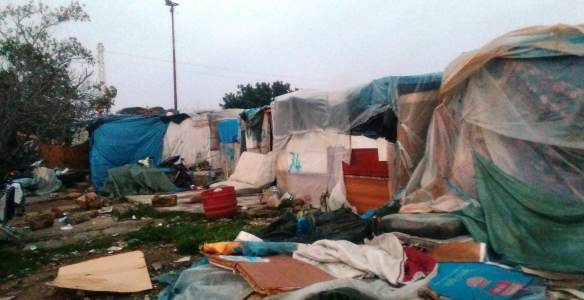10 hours of work in the fields, 15 euro
by argocatania.org
Working 10 hours in the countryside for 15 euros is a crime and not only in Paternò (see the M. Barresi inquiry on the first three pages of La Sicilia 24/4/2012) but in the majority of this area, this region and indeed the South of Italy and it is reserved for the foreign workforce (see CGIL-FLAI-Sicilia). The hiring of the workers is carried out in exactly the same way as it has been for the last 10 years: at 5am in a pre-arranged square, the “bosses” choose Sicilians and foreigners which are then made to get into vans and lorries which transport them to the countryside. The workers each have to give the “boss” €5.
Those who are hired to pick oranges in Scordia or Lentini have the choice of whether to be paid €20 for the day or 50 cents for each crate of oranges. The Sicilian workers however, get €40-45 per day. The boss’s selection criteria are simple: to check out the muscles of the worker. Yet, perhaps the most important criteria is the “ability” and above all the inclination to not rebel against the system, even after a hard day’s work.
Some have tried to rebel, but to no avail: some joined the Forconi movement, but ended up losing 10 days’ work; while others threatened to call the carabinieri when they weren’t paid- only to be met with derision.
“Our life is shit,” says one Tunisian in response to the journalist from La Sicilia, “but here even you will suffer…in a while, it will be you Italians who go and pick the oranges and you will get the same pay that we Tunisians receive. You are already coming to the Caritas to eat alongside us, when not so long ago you were saying it was disgusting.”
The M. Barresi inquiry features data provided by the trade unions: out of 29 thousand workers enrolled in the Province of Catania, 18 thousand make up the actual workforce, to which it is necessary to add 22 thousand who work without contracts. 98 are official foreign farmhands, to which it is necessary to add at least 2000 irregular positions. Bank transfers which cover only a small amount of the work carried out, false invoices, exaggerated pay slips are just some of the examples of exploitation, which concerns 50% of the agricultural workforce.
Controls carried out by the police and work inspectors have increased, but they must be constant and visible. And the “bosses” are ever present to lay down the law and impose conditions.


